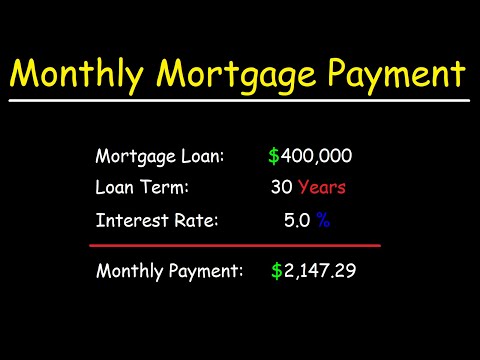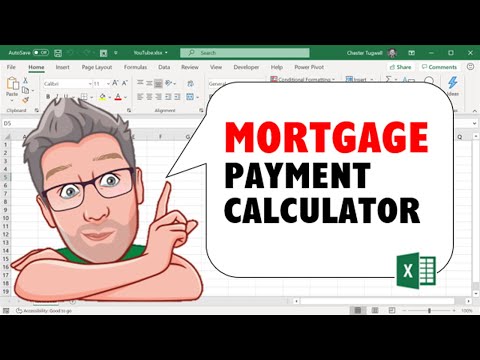Understanding the Importance of a House Mortgage Calculator
Finding the perfect mortgage plan can be like trying to find a needle in a haystack. But guess what? A reliable house mortgage calculator can simplify things for you. It’s all about computing accurate monthly payments, giving you a clear picture of your financial commitments. A top-notch calculator will break down principal, interest, taxes, insurance, and other expenses, offering you a precise glimpse into your future mortgage payments. Whether you’re eyeing a cozy cottage or a sprawling estate, knowing what you’re getting into financially is a game-changer.

Top 7 House Mortgage Calculators for Accurate Monthly Payments
1. Mortgage Calculator by Bankrate
Bankrate’s mortgage calculator has earned its stripes as a top-tier tool for precision. This easy-to-use calculator takes in the home price, down payment, loan term, interest rate, and more. It even dissects payments into principal, interest, taxes, and insurance (commonly known as PITI), offering a comprehensive analysis that few calculators can match.
Key Features:
– Customizable inputs for accurate calculations.
– Amortization schedule visualization.
– Options to include homeowners insurance and property taxes.
2. Zillow Mortgage Calculator
Zillow’s name resonates in real estate circles, and its mortgage calculator lives up to the reputation. It includes variable rates and Private Mortgage Insurance (PMI), making Zillow’s tool stand out for give-detailed monthly payment projections.
Key Features:
– Adjustable loan parameters for varied scenarios.
– Comparative loan offers.
– Seamless integration with Zillow’s property listings.
3. NerdWallet Mortgage Calculator
NerdWallet provides a comprehensive house mortgage calculator prized for ease of use and strong functionality. It allows users to account for various fees and price fluctuations, making it a powerful tool beyond basic calculations.
Key Features:
– Detailed APR (Annual Percentage Rate) analysis.
– Cost comparison over different loan terms.
– Side-by-side lender comparison.
4. Mortgage Calculator by Quicken Loans
Quicken Loans offers a mortgage calculator designed for novice buyers and seasoned investors. It’s particularly handy for its interactive and detailed payment breakdowns, giving users an in-depth understanding of their financial avenue.
Key Features:
– Interactive graph for payment schedules.
– Access to Quicken Loans’ mortgage advisors.
– Custom pre-approval options included in calculations.
5. Chase Bank Mortgage Calculator
Chase Bank’s mortgage calculator is straightforward but highly efficient. Known for its precision and user-friendly design, Chase’s tool provides a clear view of potential mortgage payments while factoring in property taxes and PMI for a full financial picture.
Key Features:
– Accurate insurance and tax estimations.
– Loan comparison tools.
– Integration with Chase banking services.
6. Redfin Mortgage Calculator
Redfin, another big name in real estate, offers a mortgage calculator celebrated for its simplicity and accuracy. Integrated directly with Redfin’s property listings, it provides a seamless experience for house-hunting and mortgage planning.
Key Features:
– Real-time interest rate adjustments.
– Detailed monthly payment projections.
– Links to Redfin’s extensive property database.
7. Mortgage Calculator by U.S. Bank
U.S. Bank’s house mortgage calculator combines ease of use with advanced financial modeling. It excels in providing detailed cost breakdowns and offers a user-friendly interface for those seeking clear mortgage payment info.
Key Features:
– Adjustable loan term inputs.
– Detailed cost breakdown.
– Direct application access for mortgage pre-approval through U.S. Bank.

| Mortgage Amount | APR (%) | Loan Term | Estimated Monthly Payment | Notes |
| $300,000 | 6% | 15 years | $2,531.57 | Does not include escrow, insurance, or property taxes |
| $300,000 | 6% | 30 years | $1,798.65 | Does not include escrow, insurance, or property taxes |
| $400,000 | 7% | 15 years | $3,595.00 | Does not include escrow, insurance, or property taxes |
| $400,000 | 7% | 30 years | $2,661.00 | Does not include escrow, insurance, or property taxes |
| $500,000 | 7.1% | 30 years | $3,360.16 | Payments could range between $2,600 and $4,900 depending on term and interest rate. Does not include escrow, insurance, or property taxes. |
| Average Payment | – | – | $2,000+ | 51% of homebuyers have monthly payments above $2,000 as of September 2023 |
| High-end Payment | – | – | $3,000+ | Nearly 25% of homebuyers have payments above $3,000 as of September 2023 |
How to Choose the Ideal House Mortgage Calculator
Selecting the best house mortgage calculator hinges on understanding your needs and evaluating the tool’s features. Look for:
– User Interface: Should be intuitive and easy to navigate.
– Customizable Input Parameters: Essential for accurate calculations.
– Inclusion of Additional Costs: Like taxes and insurance for a holistic financial view.
– Customer Support or Connectivity with Real Estate Tools: Which can provide added support in your home-buying journey.
Once you factor in these elements, tools by Bankrate, NerdWallet, and Zillow typically offer top-notch options. They excel in giving multi-functional data and simplifying the mortgage maze.

Expert Insights on Accurate Monthly Payments
An accurate mortgage calculator does more than just number crunching. It helps predict realistic monthly payments. But there’s more to it. Understanding the PITI (Principal, Interest, Taxes, Insurance) breakdown is crucial. You want to steer clear of fraud alerts and stay savvy about changes in tax policy and fluctuating insurance rates. These factors can significantly alter your projected payments. Look for calculators that update in real-time or offer scenario analysis. Some helpful insights can be found on understanding What entitled means in mortgage terms.

Wrapping Up Your Optimal Mortgage Planning Journey
Navigating the mortgage landscape can be tricky with all the variables at play. But with an advanced house mortgage calculator, you’re equipping yourself to face the challenges head-on. These tools alleviate much of the financial stress associated with home buying. By leveraging accurate monthly payment projections, you can stride forward with your mortgage confidently, ensuring both financial stability and peace of mind on your homeownership journey.
Remember, your dream home doesn’t come with a dream price tag. Make sure you use a reliable house mortgage calculator to make those dreams practical and attainable. For a detailed tool, you can check our housing calculator.
By empowering yourself with accurate data, supported by our offerings at Mortgage Rater, you’ll be well-prepared to turn your dream of homeownership into a reality without any hassle. So, whether you’re ready to apply for a home loan or just starting the planning phase, we’ve got your back every step of the way.

Let us know if you have any questions, or check out our loan calculator home for more insights into crafting your best financial future!
House Mortgage Calculator: Fun Trivia and Interesting Facts
Quirky Mortgage Numbers
Ever wondered why a house mortgage calculator is so crucial? Here’s a fun fact: the first house mortgage calculators emerged in the 1970s, paving the way for more accurate and convenient housing loan calculator tools we use today. These nifty gadgets help potential homeowners figure out their monthly payments with precision, which is particularly useful given that the jumbo loan limit can vary significantly across different regions. This variance underscores the importance of tailored calculations to avoid any financial pitfalls.
Beyond the Numbers
Interestingly, mortgage calculators aren’t just about crunching numbers – they can also reflect broader societal shifts. For example, the “si, se puede” spirit of the Spanish Me too movement underscores the importance of fairness and accessibility in every industry, mortgages included. This ethos encourages transparency and equality, which aligns with the goal of making house mortgage calculators widely available and easy for everyone to use. Even as our society evolves, the need for clear and equitable financial tools remains steadfast.
Hidden Stories Behind Mortgages
Speaking of societal impact, did you know athletes also need to be savvy with their finances? Take Geno Stone for example – he needs to be as strategic off the field as he is on it. Athletes, celebrities, and everyday folks alike all benefit from accurate mortgage calculations. Ensuring that monthly payments are manageable can help anyone, from a high-profile NFL player to someone looking for a therapist That Accepts Medicaid, maintain their lifestyle without undue stress.
Practical Usability
In the practical sense, a house mortgage calculator brings peace of mind. Whether you’re calculating interest costs or trying to gauge the affordability of a potential new home, these calculators simplify what otherwise would be a herculean task. Knowing your monthly payment ahead of time allows you to budget effectively and plan for the future without any nasty surprises. So next time you use a mortgage calculator, remember – it’s not just a tool but a gateway to secure, informed homeownership.

What is the average mortgage payment for a $300 000 house?
On a $300,000 mortgage with a 6% APR, you’d pay $2,531.57 per month on a 15-year loan. If you went with a 30-year term, your payment would be $1,798.65. These numbers don’t include the cost of insurance or property taxes, so keep that in mind.
How much is a 400K mortgage per month?
For a $400,000 mortgage with a 7% fixed rate, the monthly payment would be $3,595 on a 15-year loan. If you stretch it to a 30-year loan, you’re looking at $2,661 a month. Just remember, those amounts don’t cover insurance or property taxes.
Is $2,000 a month mortgage high?
A $2,000 a month mortgage isn’t unreasonably high, but it definitely reflects current market trends. Around 51% of homebuyers have monthly payments of $2,000 or more, which is a big jump from just two years ago when only 18% did. So, it’s becoming more common.
How much would a 30-year mortgage be on a $500000 house?
If you’re taking out a $500,000 mortgage on a 30-year term at an interest rate of 7.1%, your estimated monthly payment would be about $3,360.16. Depending on the terms and interest rate, your payment could vary between $2,600 and $4,900.
Can I afford a 300K house on a 70K salary?
With a $70,000 salary, you could afford a $300,000 house, but it might be a bit tight. Mortgage lenders typically look for a debt-to-income ratio of 36% or less, which means your monthly mortgage payment shouldn’t be more than about $2,100.
Can I afford a 300K house on a 60k salary?
On a $60,000 salary, affording a $300,000 house is possible but would be more challenging. Lenders usually prefer that your monthly mortgage payments don’t exceed roughly 30% to 36% of your income, so a lower-priced home might be a safer bet.
Can a single person afford a 400k house?
A single person can certainly afford a $400,000 house, but it depends on their income and financial situation. Ideally, you’d want to make sure your monthly mortgage payment fits comfortably within your budget and that your debt-to-income ratio is in a healthy range.
How much income do you need to be approved for a 400k mortgage?
To be approved for a $400,000 mortgage, a good rule of thumb is that your annual income should be around $100,000 to $120,000. Lenders will also take into account your debt, credit score, and other factors.
What is the 20% down payment on a $400 000 house?
A 20% down payment on a $400,000 house would be $80,000. Putting down this amount can help you avoid private mortgage insurance and may give you better loan terms.
What is a good monthly house payment?
A good monthly house payment is typically no more than 30% of your gross monthly income. This keeps your finances balanced and reduces the risk of financial strain.
Is 50% of take home pay too much for a mortgage?
Spending 50% of your take-home pay on your mortgage is generally considered too high and could leave you financially vulnerable. Most experts recommend keeping housing costs under 30% to 36% of your take-home pay.
Can I get a mortgage if I make $20000 a year?
Getting a mortgage with a $20,000 annual income would be extremely challenging. Most lenders look for income that ensures the mortgage payment is manageable and sustainable, so you might need to look for additional income sources or a co-signer.
What happens if I pay 3 extra mortgage payments a year?
Paying three extra mortgage payments a year can significantly reduce the total interest over the life of the loan and help you pay it off earlier. This can save you a substantial amount of money in the long run.
How much income do you need for a 350K house?
To afford a $350,000 house, you’re generally looking at an annual income of around $87,500 to $105,000. Lenders will also check your debt-to-income ratio, credit score, and other financial factors.
What should your income be for a $500000 home?
For a $500,000 home, a good gauge for the required income would be around $125,000 to $150,000 a year. This ensures that your monthly mortgage payment is manageable and doesn’t overwhelm your budget.



